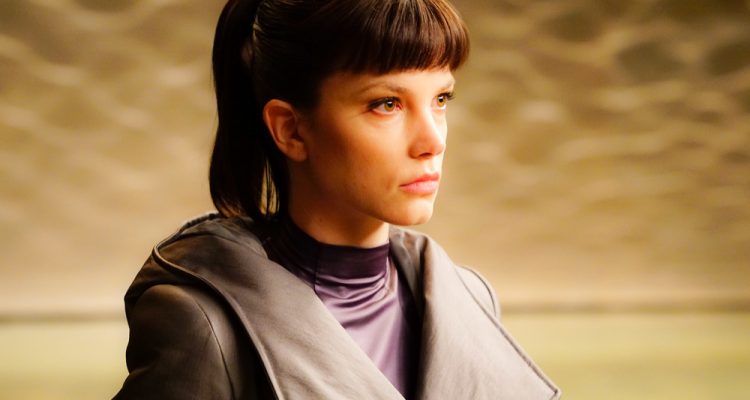It’s not often that blockbusters stay in the cultural conversation this long, but nearing two months since its release, “Blade Runner 2049” continues to be a topic of discussion. The film’s commercial disappointment is puzzling given its critical embrace, and director Denis Villeneuve is still trying to reconcile those two facts. Was the running time to blame? The enigmatic marketing? Or maybe it was the film’s arguably problematic treatment of women?
“Blade Runner 2049” doesn’t hold back in presenting a bleak vision of the future, but women, in particular, aren’t painted in the best light. Some are captive, others are prostitutes and villains, but none are heroic – at least insofar as the film has “heroes.” There is an overall one-dimensionality to the lead female characters, but Villeneuve defends how they’re presented.
“I am very sensitive to how I portray women in movies. This is my ninth feature film and six of them have women in the lead role. The first ‘Blade Runner’ was quite rough on the women; something about the film noir aesthetic. But I tried to bring depth to all the characters. For Joi, the holographic character, you see how she evolves. It’s interesting, I think,” he explained to Vanity Fair.
“What is cinema? Cinema is a mirror on society. ‘Blade Runner’ is not about tomorrow; it’s about today. And I’m sorry, but the world is not kind on women,” Villeneuve continued. “There’s a sense in American cinema: you want to portray an ideal world. You want to portray a utopia. That’s good—dreams for a better world, to advocate for something better, yes. But if you look at my movies, they are exploring today’s shadows. The first ‘Blade Runner’ is the biggest dystopian statement of the last half-century. I did the follow-up to that, so yes, it’s a dystopian vision of today. Which magnifies all the faults. That’s what I’ll say about that.”
It’s an interesting defense but almost seems like an easy out for the film’s storytelling. Thoughts? Hit up the comments section and let us know what you think.

